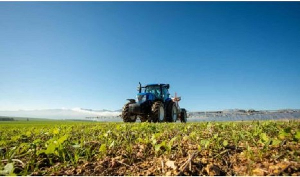The history of industrialization dates back in the 18th and 19th centuries.
Investopedia defines industrialization as “the process by which an economy is transformed from primarily agrarian or resource-based to one based on manufacturing of goods”.
Individual manual labour is often replaced with mechanized systems for mass production. However, in this era of industrialization, manual labour is not replaced with mechanized systems but rather humans work in collaboration with automated, robotic and digitized systems.
The essential characteristics of industrialization include economic growth, effective and efficient division of labour, social security and the use of technology and innovation to solve manufacturing problems. This article considers Ghana’s industrialization drive in two phases:
1. Industrialization of major sectors of the economy to reduce importation of goods and services; and 2. Industrialization policy schemes to enhance the welfare of Ghanaians. Success stories from Finland will be presented as a case study for Ghana to consider emulating towards fulfilling her industrialization drive.
Industrializing major sectors of the economy to reduce importation of goods and services.
Considering the technologies, innovations, and scientific data available to us, Ghana’s industrialization drive in this era of Industry 4.0 is low. Is it obvious to say that Ghana has substituted industrialization for heavy importation of goods and services? History shows that during the 2nd industrial revolution, Dr Kwame Nkrumah and his government contributed their quota by industrializing key sectors of Ghana’s economy.
Although the NPP and NDC governments might have done their bit as a contribution to Ghana’s industrialization drive, there is more to be done to bridge the gaps between Industry 1.0 and Industry 4.0. One of the key industries which need attention is the metal and welding industry.
The metal sector of the economy relies heavily on importation of metal products being it flat-rolled, coiled sheets, etc. According to Global Edge, the trade statistics of Ghana shows that the country imported iron and steel articles at a tune of $ 925,408,556 in the year 2018. If companies in Ghana and Ghana government agencies could raise about $ 1 billion for the importation of steel products, could such sum of money to channelled into building steel plants in the country?
If that could be done, the country would start benefiting from sustainable production of metals and the manufacturing of metal products towards job creation in the sector. Secondly, the usability of metals in Ghana is very low due to the lack of expertise and capacity in processing metals into finished products. The most important expertise needed in processing metals into finished products includes cutting and bending.
Current observations in the metal sector show that cutting of metals such as mild steel, stainless/acid resistance steel and aluminium are made manually with either flame-cutting equipment, band saw, etc. These types of metal cutting techniques somewhat produce inaccurate cuts leaving undesirable “cut-kerf”. The quality of processed metals and their related productivity issues are mostly affected.
Further machining and grinding of the cut parts need to be done to put such parts into precise dimensions and shape. Advanced and innovative metal cutting processes must be adopted to ensure quality, productivity and competitiveness in manufacturing of existing models and new models of metal products and structures. Investing in CNC plasma cutting machines and laser cutting machines in the metal sector of Ghana would help boost metal product manufacturing capabilities.
In the welding sector, most of the skilled jobs for welders are taken by foreigners. These foreigners provide such labour services at exorbitant cost because they are being paid as expatriates.
Although some Ghanaians find themselves in such welding job positions, they are very few. The nation needs to train about 10,000+ welding professionals ready to occupy welding job positions across welding-related fields such as in the oil and gas, mining, energy, agriculture, shipbuilding, etc.
Firstly, we need to train instructors and inspectors according to ISO 14731 and ISO 9712 standards respectively under the International Institute of Welding (IIW)-International Authorization Board (IAB) education, training, qualification and certification framework. These instructors will in turn train welders according to ISO 9606 standard.
Companies that perform welding projects need to undergo qualification and certification according to ISO 3834 standard to be able to manufacture and provide turnkey welding engineering projects and services. Ghana is currently not a member of IIW-IAB so the country cannot adopt the IIW-IAB framework.
Nonetheless, countless efforts to get Ghana to join IIW-IAB and position Ghana on the international map of welding shall be a fulfilled vision. I see the day where Ghanaian welders shall be highly competitive to their foreign counterparts.
I see the day where Ghanaian welding professionals shall be sought after both in Africa and around the globe. I see the day where Ghanaian companies shall take on turnkey projects without the involvement of foreigners. I see the day where Ghanaian companies shall manufacture welded products and be sold internationally.
Industrialization in the welding sector, therefore, starts with education, training, qualification/accreditation and certification of welding personnel, institutions and companies.
The need to have advanced welding machines and equipment, inspection and testing equipment for education and training purposes is critical and imperative.
Training of welding professionals as well as company certifications can be done via our traditional universities, technical universities, technical and vocational institutions, and welding centres established by private businesses when they are accredited and approved under the IIW-IAB framework.
Industrialization policy schemes to enhance the welfare of Ghanaians Approximately 80% of the Ghanaian workforce is manual labour since the majority of the workforce is in the informal sector. It is about time to formulate policies which will encourage the Ghanaian workforce to adopt mechanized and automated systems in their work. Doing so, the economy will benefit from mass production and quality goods and services.
Formalizing the Ghanaian informal sector to at least 50% would do a great service to the nation. It is also about time to formulate policies to put labour and trade unions in check and encourage the formation of new ones. I suggest that existing and new labour and trade unions should have benefits system for their unemployed members. This system can be enforced through policies backed by the government.
Also, I do suggest that taxes on goods and services received by the Ghana government should be distributed such that some quota goes into social security funds set aside for every Ghanaian right from birth. A Ghanaian youth need not attain working age before obtaining a social security number. The social security system practised in Ghana, therefore, needs improvement.
Under efficient and effective industrialization drive, the aforementioned can be implemented so that Ghanaian kids, those of school-going age, women (pregnant mothers and those nursing their babies at home), the unemployed, pensioners and the aged would have monthly financial social security benefits. When implemented, these shall be classical indications of Ghana beyond aid.
Building resilient infrastructure, promoting inclusive and sustainable industrialization, and fostering innovation (i.e. United Nations Sustainable development goal – UN SDG 9) is a great policy which Ghana needs to boldly adhere to. Notably, Ghana has received $ 1 million to help the nation develop steps in achieving UN SDGs. Paying attention to industrialization would help transform Ghana’s economy from import-dependent to export and service-oriented nation.
Case study: success stories from Finland due to industrialization
Being a national agrarian nation in the 1800s, Finland was a poor country that industrialized at a late stage. Despite the late industrialization, Finland has become an export-driven nation, where the 3rd and 4th largest exported products are metal and metal products, and machinery and equipment.
In 2019, exports of metal and metal products, and machinery and equipment were at a tune of EUR 1.25 billion and EUR 1 billion respectively. Towards extensive industrialization, history proves that Finnish labour laws were revised in the 1920s and social security systems began to develop towards the end of 1930s. Also, policies on pensions, taxes, labour market and employer’s organization structures were reformed.
In the mid-1970s, the change in the social structure of Finland accelerated and economic policies focused on the importance of industrialization, economic growth and growth policies, thus changing from an agrarian to an industrial and service society. One other policy Finland instituted through the industrialization drive was social income transfers which helped to boost consumer demand, thereby securing the conditions for economic growth.
The benefits industrialization has brought to Finland include the following: earnings-related pensions, unemployment benefits, earning-based security for the unemployed, industrial accident insurance, health allowance, income support for families with children, housing allowance, financial aid for students, children’s daycare subsidies, child home care allowances, etc.
Conclusions
If Ghana could study the industrialization model of the Finns and draw further examples from countries such as the U.S.A. U.K, Germany, Japan and countries in the Nordic and Scandinavia regions, the nation will be on the verge of building a robust economy and social security structures. Also, the spirit of comradeship in arms needs to be born.
We need to have new ways of thinking, focusing on common responsibility, and fairness towards social security. Ghana’s competitiveness on the global front shall be massive and second to none in Africa. Ghana’s economy shall safeguard her citizens, especially in times of crises and pandemics like COVID 19.
Sources
https://globaledge.msu.edu/countries/ghana/tradestats https://www.kela.fi/documents/12099/12170/socialsecurity.pdf https://tulli.fi/documents/2912305/3439475/Finnish+international+trade+2019+-+Figures+and+diagrams/4ebae1ed-15b1-9269-4c69-ffbcceeb6ee4/Finnish+international+trade+2019+-+Figures+and+diagrams.pdf?version=1.8
Dr Gyasi is a mechanical/international welding engineer, a TVET and pedagogy facilitator, a senior researcher and a social entrepreneur. Contact: kwakuamoafo@yahoo.com
Opinions of Wednesday, 26 August 2020
Columnist: Dr. Emmanuel Afrane Gyasi, DSc. (Tech), PhD















